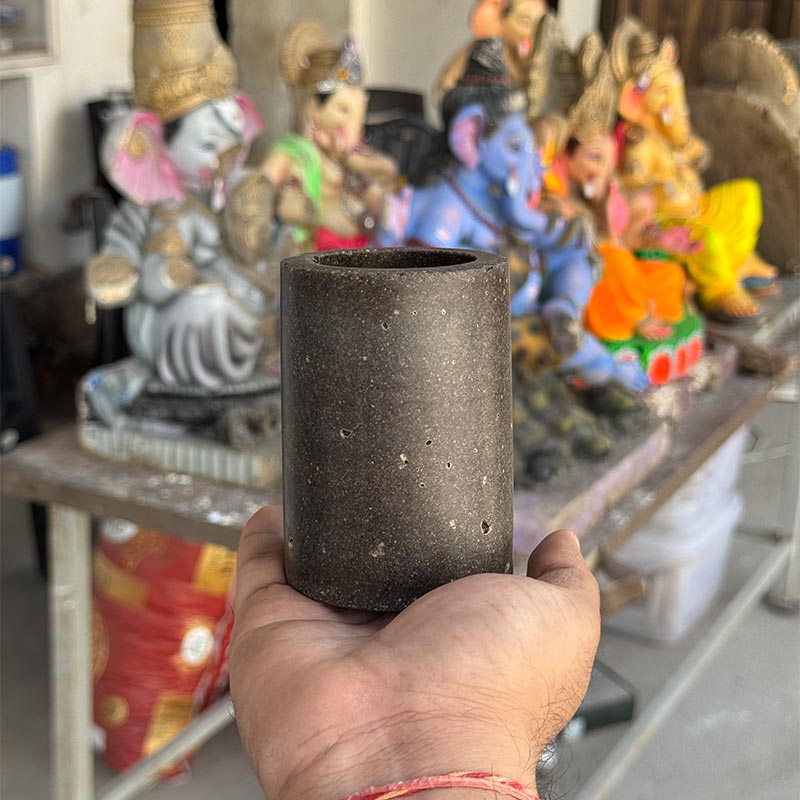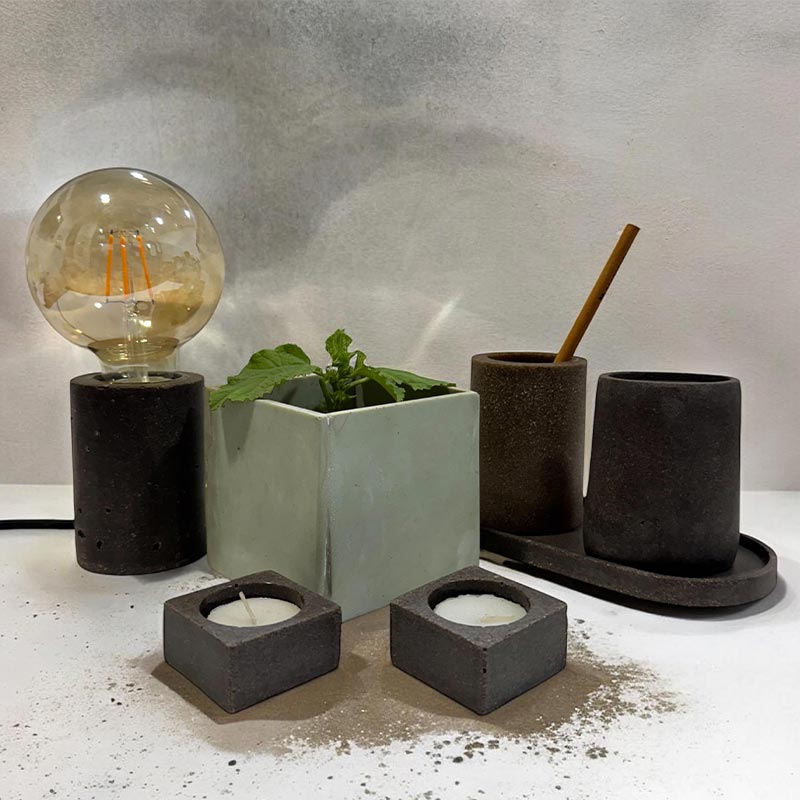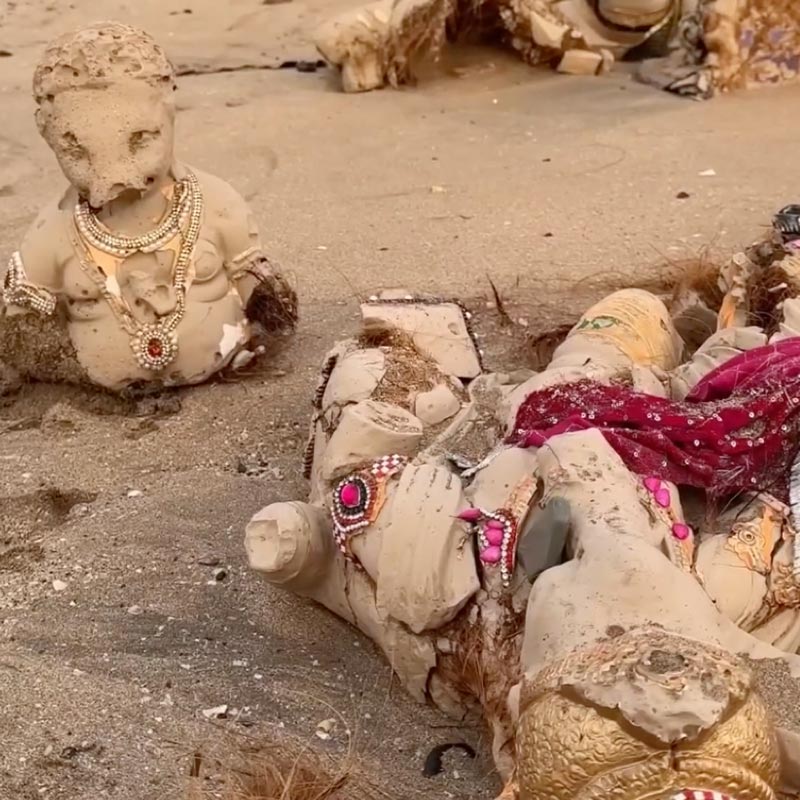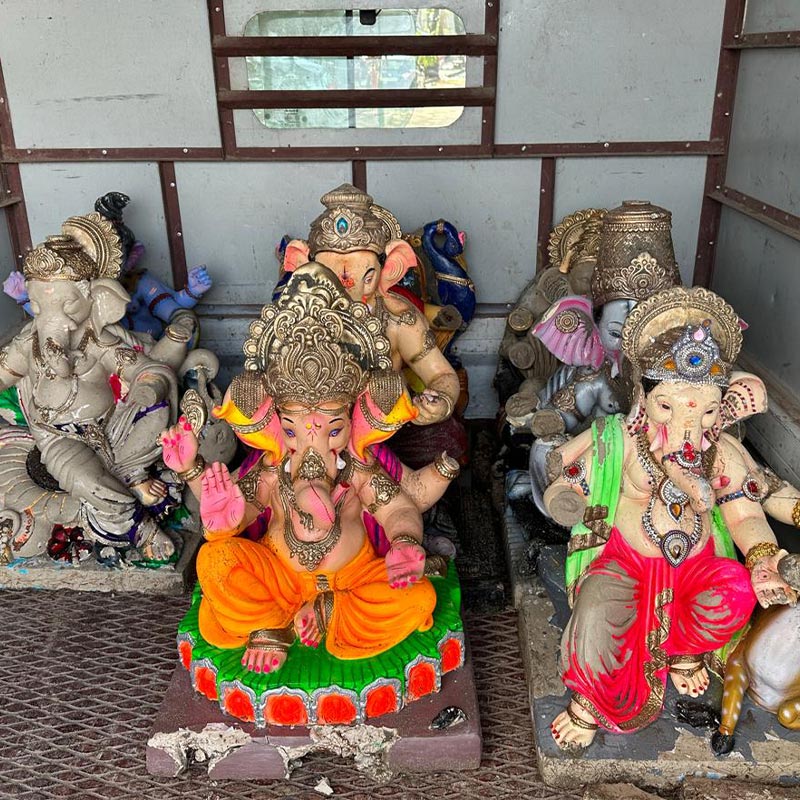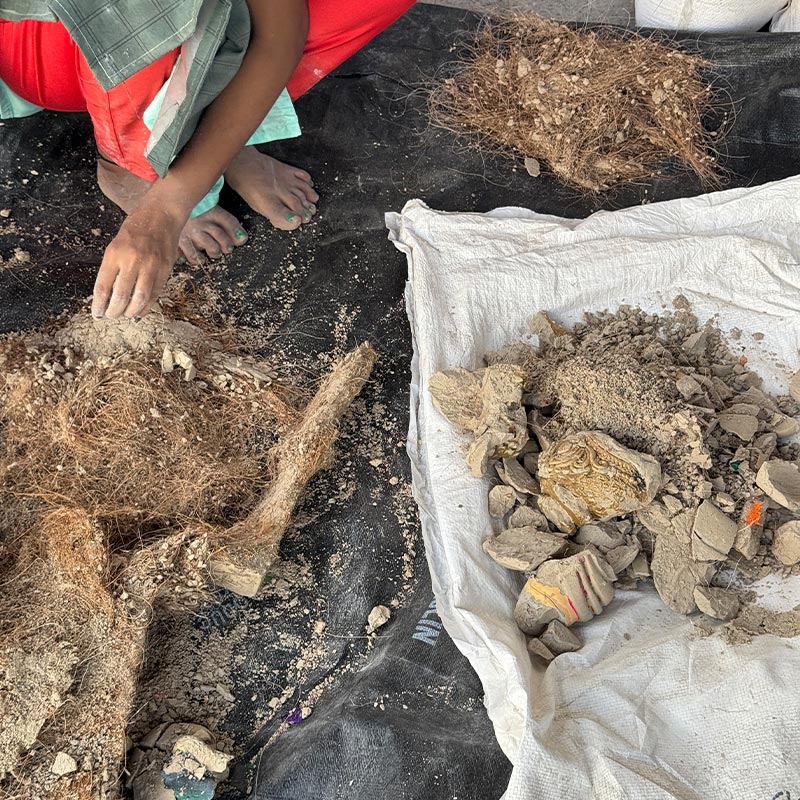Sacred Plaster of Paris
Problem
Every year in India, lakhs of Plaster of Paris (PoP) idols are immersed during Ganesh Chaturthi,with Maharashtra alone accounting for over 4,500 tonnes annually, of which Mumbai contributes nearly 675tonnes through the immersion of about 1.5 lakh idols (Source: MPCB Report 2023). Unlike clay idols that dissolve within hours, PoP; made from gypsum and reinforced with fibres and fabrics; remains intact for months, continuously leaching toxic metals like lead, cadmium, and mercury into rivers and seas. This pollution hardens water, suffocates fish, damages mangroves, and seeps into our food chain. What begins as an act of devotion has thus evolved into an environmental crisis, underscoring the urgent need for eco-friendly alternatives that can preserve faith without compromising nature.
Solution
We have developed first-of-its-kind solutions in India to tackle the Plaster of Paris (PoP) idol problem through a circular, sustainable approach. PoP idols collected from post-visarjan cleanups is brought to our facility, where it is broken down and segregated into powder and fibres. The powder is then integrated into our proprietary recipe and transformed into durable products such as study desks, planters,and giftingitems; turning a major source of pollution into purposeful creations.
Impact
In 2024, this innovation was piloted in Valsad with the support of the Valsad Collector and Valsad Nagarpalika, where over 250 kilos of PoP idols were recycled into useful products, with additional support from the BMC and Mumbai’s “Beach Please.” This pioneering step set a benchmark for how faith and festivals can harmoniously align with sustainability, inspiring a future where the use of PoP idols can be eliminated altogether. Our target for 2025 is to recycle 1,000 kilograms of PoP, with the long-term visionof establishing recycling facilities for Municipal corporations that operate year-round to process all PoP idols along with other PoP waste; creating a lasting solution to this pressing problem.

